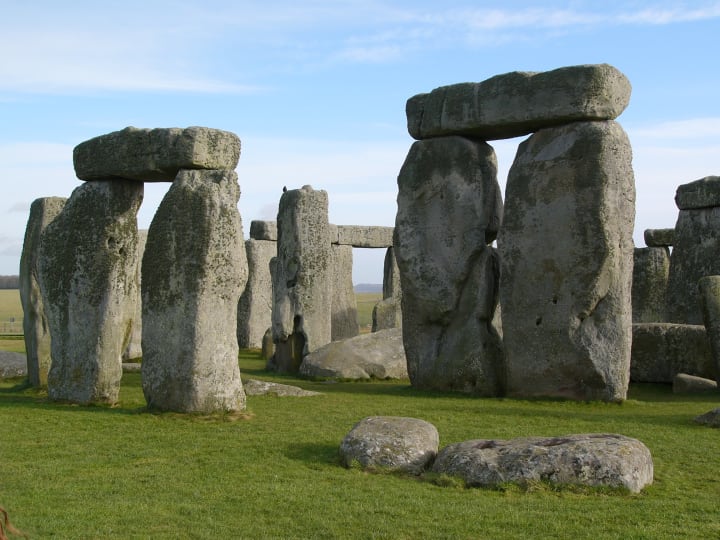5 Tips For Playing Better Clerics
A Pathfinder RPG Guide

The gods are a distant, yet potent force in fantasy RPGs. While they rarely interact in meaningful ways with the populace at large, there are certain servants they deem worthy. Men and women whose prayers are answered, and who are graced with the touch of the divine. They are given the right to perform miracles in the name of the gods, and they draw their power from a well deeper (and sometimes darker) than mortal minds can comprehend. They are known by many names throughout the world, but to those of us sitting around the table they're called clerics.
Clerics come in all shapes and sizes, colors, and creeds. They serve gods, as well as ideals, and they can be built to achieve an infinite variety of goals. But too often they all end up sounding the same; zealous evangelists who seem to have little motivation outside of their divine calling.
If you've been looking for a way to get out of the missionary position, here are a few, simple tips you should keep in mind. As always, I'd like to remind folks that this list is geared toward the Pathfinder roleplaying game, but the advice may be useful for similar systems.
For more great gaming insight, head over to my blog Improved Initiative. Or, if you're interested in more posts just like this then check out the 5 Tips Mast List. And for even more gaming material, take a moment to see what else I've got here at my full Vocal archive.
#1: Are You Independent, Or Part of a Church?
One of the major assumptions we make about clerics is that they are part of an established, organized church. After all it seems every small town you come to has at least a one-room chapel, and there are typically entire districts of major cities devoted to houses of worship. The roads are lined with shrines, and it is rare indeed for any given settlement not to have at least a nominal faith in some deity.
However, nowhere in the class description does it say clerics must be priests in the traditional sense. Just like how paladins don't have to be part of knightly orders, clerics don't need to go through seminary, and take the vows of an organized church. They are chosen by the gods themselves, not empowered by their fellow men. So it's entirely possible that someone dedicated to a god of war found their faith on the battlefield, sword in hand, as he slew in his god's name. Someone might study with a lone hermit in the wastes, learning a faith at the feet of a sage no one else has even heard of. A cleric might even be considered a heretic by members of the established religion, but even though they claim this person is not a true servant of their god, there is no denying the power they wield.
More on that in The Heretic, if you're interested.
On the other hand, if you are part of an established religion, then what is your role within the church? Are you a missionary who goes to other places to spread word of your faith? Are you a chaplain, seconded to the military as an agent of the faith? Are you a scholar, or a teacher, who instructs acolytes in the rituals and spells of your order? Or are you something else? This can solidify the character in your mind, and make it much easier to get a grasp on what's expected of them, in terms of their duty to the church.
Tip #2: Do You Worship a God, or an Idea?

You have options, is what we're saying.
As players, we're used to clerics being the servant of one, specific god. Once in a great while we'll find someone who's a servant of a pantheon, but that's pretty rare. Typically we think of it as one cleric, one god, and that cleric has a personal relationship with that god. There's a lot of character flavor to be had there, because you have to ask what that kind of a relationship does to someone. Do they try to embody that god, or are they someone you would never expect to be part of that faith? Do they receive clear messages from their deity, or do they have to interpret signs and portents like they have an all-powerful but passive-aggressive boss?
There's also an option players either forget, or overlook. Because a section on page 39 of the Core Rulebook states that clerics can follow an idea, or a philosophy, instead of a god. This presents an opportunity (and challenge) that players don't often consider. An established religion has rules and regulations, and gods have myths that set forth how their followers should act. But what does a cleric who follows the idea of knowledge do? Or someone devoted to the concept of good? The book itself says you should sit down with your DM to have a long, involved discussion on the subject, but it can be freeing for players to feel they have a hand in shaping the essence of their cleric's faith, and putting it into an idea rather than into a deity.
In either case, though, it's important for you to ask how your cleric first found faith, and why they were chosen by whatever force it is that grants them power. Because that incident can shape them as surely as anything in their holy book. If they have one.
If you're looking for additional inspiration in this area, check out the supplement Gods of Sundara (for both Pathfinder or for DND 5E) to see some of my additional thoughts on playing with the divine. Alternatively, if you have one of those rare opportunities to play an evil cleric, then you might get more out of 13 Fiends: A Baker's Dozen of Devils, which comes with rites and rituals, history, and goals of a variety of minor devils who are more than happy to grant power to those overlooked by archfiends.
Tip #3: How Do You Pray?

Ask, and ye shall receive.
Clerics are prepared casters, and as such, they have to spend an hour at a certain time of day praying to their patron for spells. Most of us hear that, and we picture a cleric kneeling in quiet contemplation, sending their thoughts up to the divine to dip a little power out of their well.
That's all well and good for members of quiet, contemplative, pious faiths, but what about those who serve raucous, violent, or artful gods? Would they accept prayers from someone just sitting quietly in a field, muttering to themselves?
As mentioned in What Does Your Spell Preparation Look Like?, you can get a lot of insight to your cleric when you ask what their ritual preparation actually is. What time of day do you pray, for instance? And what environment is preferred? What rituals do you perform, and do you need any special tools in order to perform them? Do you drip holy water and oil onto your blade, and draw a sanctified whetstone down its length while speaking the warrior's mantra? Do you make a series of beautiful charcoal sketches, then light them in a brazier so the smoke will reach your goddess in the clouds? Do you whisper your prayers to an insect, a fox, or a tree, trusting them to bring your words to the nature god who empowers you?
Don't be afraid to get creative with it!
Tip #4: What Are Your Vows and Sins?

Smoking and drinking, as is required in the Promises of Saint W.K.
Every faith has a doctrine, whether it's an official one or not, and as we know clerics who fall out of sync with the divine forces that grant them power will lose most of their class features. So as what are the things your cleric does to please their patron? What are the things they are prohibited from doing?
For example, lots of players assume that clerics (and paladins) have taken vows of chastity as part of their faith. That might make sense for some servants of some deities, but it makes no sense for others. What good is a chaste servant of the god of family? Are clerics allowed to use drugs in your faith? Or must their use be prescribed under certain circumstances as an imbibing of a holy substance used to reach a higher plane of consciousness? Are you allowed to raise your hand to stop violent acts? Does your faith have enemies that you must face, regardless of the circumstances?
If your faith is the bedrock of your adventuring career, then it's important for you to know what you have to do to please (or at least avoid displeasing) your patron divine force. Keeping your alignment within one step is well and good, mechanically, but it isn't as helpful a metric as sitting down with your DM to talk about what the tenets of your faith are, and how you keep them.
Fortunately for cleric players, Paizo has fleshed out a lot of the specifics regarding the gods and their faiths in their world. Everything from splat books like Gods and Magic to full tomes like Inner Sea Gods will help you find what you're looking for.
Tip #5: Ask Who Your Cleric is Behind Their Faith

Just cause I heal you, don't mean I like you.
Faith is the defining feature of a cleric. Without it they have no patron, no magic, and they aren't markedly different from most normal people. But a cleric is more than who or what they pray to. Their faith is a defining feature of their life, but it should not be the only feature of it.
Start by asking who your character was before they found their faith. Were they a noble, who was chosen to fulfill a higher purpose? A pirate, or a bandit, living out in the wilds of the world and preying on the weak? A mercenary selling their sword for silver? Or were they chosen at a young age, and it's always been a part of who they are?
For some inspiration on the above backgrounds, and to find NPCs to act as friends, family members, fellows in arms, etc., check out:
- A Baker's Dozen of Noble Families
- 100 Random Mercenary Companies
- 100 Random Bandits to Meet
- 100 Pirates to Encounter
Ask how their faith has shaped them, and how it's altered their life goals. Ask what their temptations are, and how they deal with them. Ask who their friends are, who their family is, and if they had to leave anyone behind to answer the call of the divine. Do they ever miss that life they could have had before power was thrust upon them? Do they have hobbies? Do they want to retire, and pass the mantle on to someone else in time? Or do they seek to die gloriously in their god's service, either to become a martyr, or to guarantee a place for themselves in the afterlife?
Despite their borrowed power, clerics should also be people. And when an actual person practices a faith, it can often have some unexpected results. Embrace those, and see where it leads you!
About the Creator
Neal Litherland
Neal Litherland is an author, freelance blogger, and RPG designer. A regular on the Chicago convention circuit, he works in a variety of genres.
Blog: Improved Initiative and The Literary Mercenary






Comments
There are no comments for this story
Be the first to respond and start the conversation.